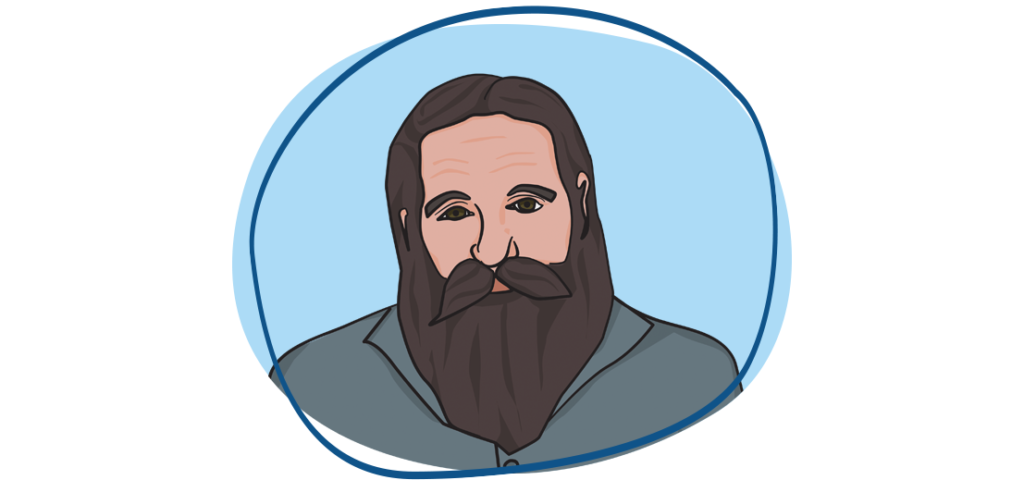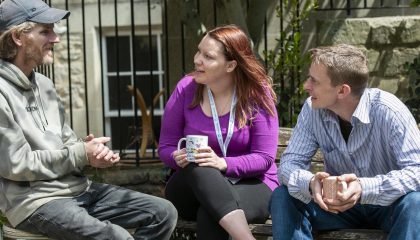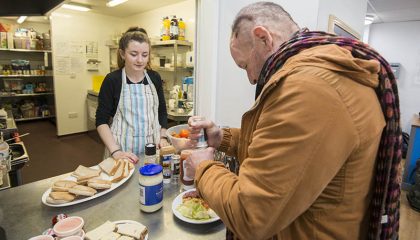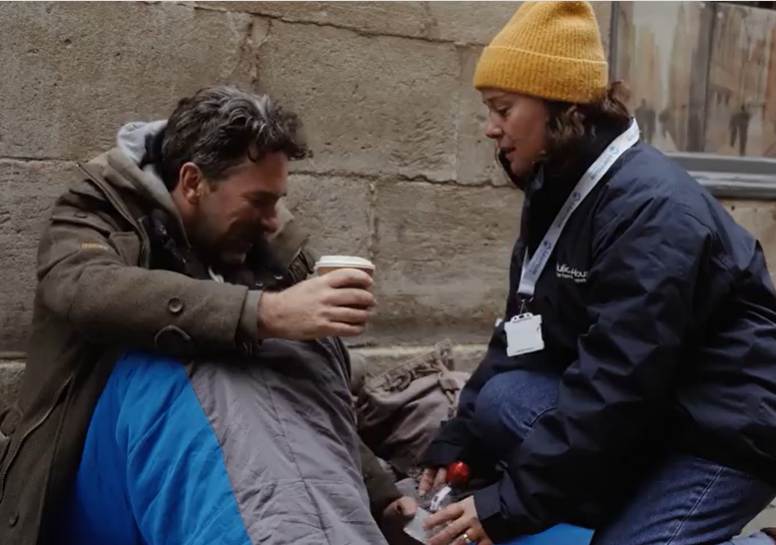
In a heartfelt interview, Stephen shared his experiences of homelessness, his thoughts on society’s perception of the homeless, and some personal stories from his past. Stephen, who has been without a permanent home for much of his life, spoke candidly about the struggles that come with homelessness, the misconceptions people often have and the labels they give.
Stephen points out the systemic issues that contribute to homelessness, in particular, the lack of affordable housing: “The government has not built enough houses, and landlords, they’re buying three and four, five, six houses, and out-pricing everybody. So most of the time, it’s not the only person’s fault for being homeless.”
He pointed out that the perception of homelessness is often unfairly tied to negative stereotypes, saying:
“A lot of people look at you and think you’re a drunkard, or do anti-social behaviour… usually it’s not the case. People have the perception that if you’re homeless, you’re nasty, you’re thieves, we’re this, we’re that.”
He urged others to challenge these preconceptions and recognise that many homeless people are decent individuals simply trying to survive.
Stephen has experienced homelessness on and off for many years, including 27 years living on the streets in Crew. His most recent stint of homelessness occurred when, after finally getting a place to live, he experienced victimisation leading him to flee for his safety:
“I got some nasty people coming along that kicked my door in. For no reason of mine, because they’re just animals. No, that’s being evil to animals. I moved out as quickly as I could, and that’s what made me homeless again.”
Stephen recounted various jobs he had, including working in warehouses and doing odd jobs like window cleaning. He especially enjoyed jobs that provided structure and routine, explaining:
“I’m methodical, and I like routine… the best job I ever had was working at 8-5 in the warehouse because it was basically the same all day. I liked that.”
A turning point in Stephen’s life was when he experienced his first bout of homelessness after a personal tragedy:
“The hardest day of my life was 1978. That’s when I was homeless for the first time because I basically fell out with God because the girl I was going to get married to died three weeks beforehand. She was 23, I was 23. And that knocked me for six and I couldn’t face humanity. I just wanted to be on my own”
This loss had a lasting impact on him, and he shared how he’s never been able to love another person the same way since.
Despite the challenges, Stephen is grateful for the support he’s received at Julian House, where he’s been staying since May. He spoke highly of the staff and the atmosphere, saying:
“The staff are absolutely fantastic… they can’t do enough for you… they are here to help you. They actually go the extra mile.” For Stephen, the kindness he has experienced at Julian House has been a stark contrast to how he is often treated elsewhere: “They treat you like a normal human being, which takes a bit of getting used to.”
Stephen’s story is a powerful reminder that homelessness is often the result of circumstances beyond an individual’s control, and that beneath the struggles are human beings with rich lives and experiences. He ended the interview by advising others not to judge or label homeless people without understanding their story.
Through Stephen’s words, we see both the resilience and the vulnerability that come with a life on the margins, and the importance of compassion and understanding in addressing homelessness.






